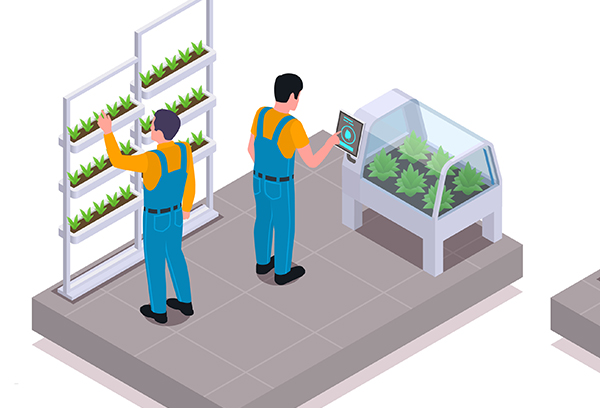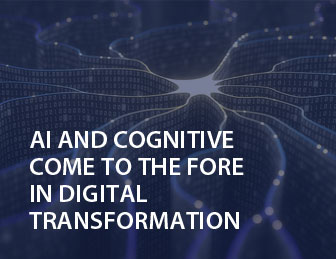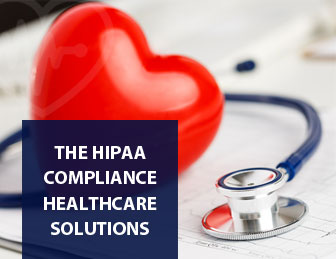The agriculture industry has been transforming rapidly in recent years, and artificial intelligence has to be given credit. From AI-enabled tractors to built-in smarts to disease detection, this sector has seen it all. The professionals in this industry are increasingly using AI tools, ML algorithms, and automation techniques to promote efficiency, productivity, and sustainability.
Precision Agriculture: Farm Optimization With AI-Powered Insights
Artificial intelligence and machine learning (ML) algorithms analyze data from various sources like satellites, drones, and IoT sensors to scrutinize soil fertility, crop health, and microclimate conditions. The data gathered from such an investigation can be used to assist farmers in making informed decisions about planting, watering, and harvesting. It can also be harnessed to optimize inputs like water, fertilizers, and pesticides to increase yield and reduce waste.
Forecast The Future In The Agriculture Sector With Predictive Analytics
By interpreting existing data on weather patterns, crop performance, and pest infestations, different sorts of AI models and ML classification algorithms can forecast future trends. This enables the farmers to anticipate the issues beforehand, plan for varied types of scenarios, and lessen risks, potentially elevating crop yield and quality.
Automated Machinery: The Entry Of Agribots In The Farming Landscape
The agricultural sector has also been impacted by the plethora of machinery, such as, self-driving tractors, drones, and robotic harvesters, among others. These assets use AI to navigate fields, plant seeds, apply fertilizers, and harvest crops more efficiently than human-operated equipment. This automation can result in significant labor savings and perfection in farming operations.
Harvest Healthily With AI-Enabled Disease and Pest Detection
AI-backed image recognition technologies can detect disease and pest infestation in crops at early stages. By carefully studying images from cameras, drones, or smartphones, farmers can identify problems early and take targeted action, mitigating the need for widespread pesticide use and improving crop health. Early identification of any issues also expedites farmers ability to craft more accurate treatment plans.
Smarter Farming With AI-Built Supply Chains
AI and ML can improve the agricultural supply chain from farm to table. Predictive analytics helps predict demand more precisely, handle inventory levels, and plan logistics to reduce waste and increase efficiency. AI can also trace the provenance of food items, ensuring food safety and quality.
AI Fast-Tracks Genetic Crop Improvement
AI algorithms interpret genetic data alongside environmental and cultivation data to detect traits associated with desirable outcomes, such as drought resistance or increased yield. These spearhead the breeding of new crop varieties better adapted to changing conditions.
Conserve Soil and Water With AI
The classification algorithms in AI and ML analyze data on soil moisture, type, and composition to ameliorate irrigation schedules and methods. This not only preserves water but also prevents soil erosion and degradation, promoting sustainable farming practices. Thus, in a way, AI helps in achieving our sustainable goals, mitigating any type of negative environmental impact.
Optimized Market Prediction and Management Using AI
AI tools can study market trends, commodity prices, and consumer demand to assist farmers in making better business decisions about what crops to plant and when to sell their produce, increasing profitability.
AI Facilitates Enhanced Livestock Management
AI/ML techniques are used in livestock management to analyze health and well-being, improve feeding, detect illness, and optimize breeding. Sensors and cameras keep tabs on vital signs and behaviors, alerting farmers to issues before they become serious problems.
The Tech Framework: Explore Which Technologies Help AI Succeed
While it is true that AI must be labeled as the clear winner in terms of optimizing the agricultural industry, we must also look into some of the technologies that make it easier for AI to function.
Salesforce
A CRM platform can be specifically designed for farms with the help of Salesforce CRM. This technology can be adapted to track crops, handle inventory, and integrate with distributors—all vital aspects of running a modern farm.
Open Source
We have a number of open-source software products on the market that provide affordable and adaptable tools for AI development. This accelerates smaller aggrotech companies to innovate and create AI solutions customized to specific needs.
Microsoft
Talking of AI and agriculture, we must look into Microsoft Azure. It is because this technology offers a powerful cloud computing platform for AI applications in agriculture. With Azure, farmers can store and interpret massive datasets efficiently, empowering them to leverage AI’s full potential.
Cultivating Agriculture’s Future With Flexsin’s AI Solutions
As a digital transformation company, Flexsin creates AI-powered apps for farmers to study soil data, improve irrigation, or identify crop health issues. The company also utilizes several technologies, like Microsoft, Salesforce, etc., to accelerate the performance of the AI-powered apps.


 Anurag Dutt
Anurag Dutt


